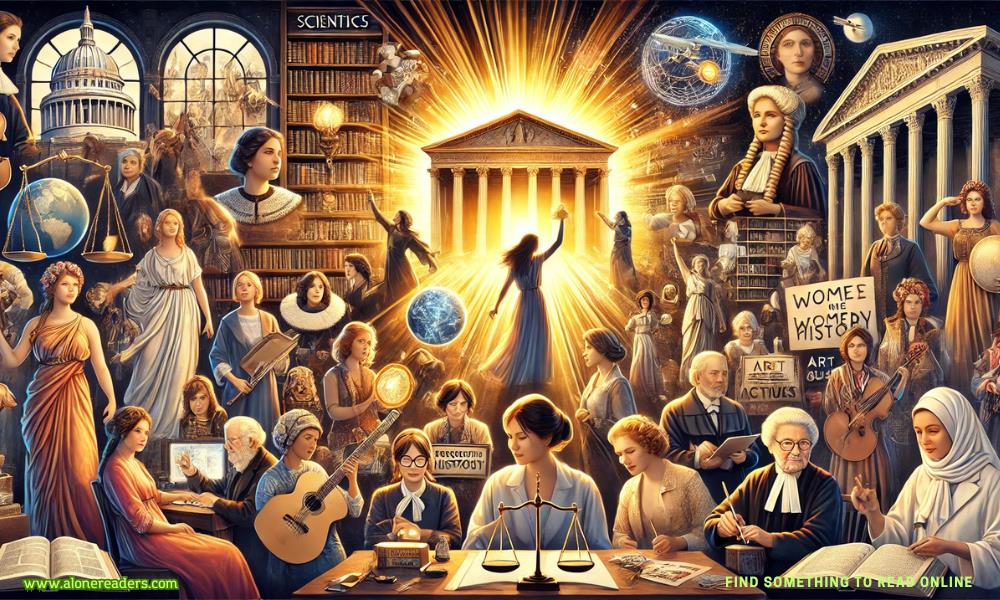
Throughout history, women have played pivotal roles in shaping societies, advancing knowledge, and championing justice. Yet, countless remarkable women have remained in the shadows, their contributions overlooked or attributed to men. This article celebrates the unsung heroines who defied societal norms, broke barriers, and left lasting legacies that continue to inspire.
Women have been at the forefront of innovation, often without receiving due credit. Take Ada Lovelace, for example. Recognized as the world's first computer programmer, she envisioned the potential of computers far beyond simple calculations. Despite her revolutionary insights, her contributions were marginalized for years.
Similarly, Rosalind Franklin, whose work with X-ray crystallography was instrumental in discovering the DNA double helix, was largely overshadowed by her male colleagues, Watson and Crick. These women laid the groundwork for advancements that transformed the modern world.
History is rife with women who championed social change. One such figure is Ida B. Wells, an African-American journalist and activist who fearlessly fought against lynching in the United States during the late 19th century. Her investigative journalism and advocacy were critical in sparking civil rights movements.
In India, Savitribai Phule emerged as a pioneering educator in the 19th century, founding the first school for girls in a society steeped in caste and gender discrimination. Her relentless dedication to women's education reshaped opportunities for generations.
While warriors like Joan of Arc are celebrated, others remain relatively unknown. Nzinga Mbande, a 17th-century queen of Ndongo and Matamba (in present-day Angola), resisted Portuguese colonization with unmatched diplomatic and military strategy.
Similarly, Boudica, a queen of the British Celtic Iceni tribe, led a significant uprising against Roman occupation. These women demonstrated resilience, leadership, and a willingness to challenge the status quo, often at great personal cost.
Women in science have faced significant barriers, yet their contributions are profound. Mary Anning, a self-taught paleontologist in the 19th century, made groundbreaking fossil discoveries that advanced the field of geology. Despite her expertise, she was rarely credited during her lifetime.
Another notable figure is Chien-Shiung Wu, a Chinese-American physicist whose experimental work disproved a fundamental principle in physics, earning her the title "First Lady of Physics." Despite her pivotal role, Wu was often overlooked in favor of her male peers.
Many female artists and writers have shaped cultural narratives, often battling societal constraints. Artemisia Gentileschi, a Baroque painter, defied gender norms in the 17th century to create powerful, evocative works that often depicted strong female protagonists.
In literature, Zora Neale Hurston, a prominent figure of the Harlem Renaissance, used her writing to explore African-American culture and identity. Although underappreciated during her lifetime, her works have since become cornerstones of American literature.
The field of medicine owes much to women who pioneered new ways of thinking. Florence Nightingale revolutionized nursing, transforming it into a respected profession while laying the foundation for modern healthcare systems.
In the realm of public health, Henrietta Lacks, though not a scientist herself, unknowingly contributed to medical breakthroughs. Her cells, taken without her consent, became the first immortal human cell line, leading to advancements in cancer research, vaccines, and more.
While figures like Cleopatra and Elizabeth I are well-known, others like Sojourner Truth and Emmeline Pankhurst remain less prominent. Truth, a former enslaved woman, became a powerful advocate for abolition and women's rights, delivering her iconic "Ain’t I a Woman?" speech in 1851.
Pankhurst, meanwhile, was a driving force behind the suffragette movement in the United Kingdom, fighting tirelessly for women’s right to vote—a fight that paved the way for political equality.
Not all heroines sought fame. Clara Lemlich, a young immigrant in early 20th-century America, led the 1909 garment workers' strike, demanding fair wages and better working conditions. Her efforts sparked widespread labor reforms.
Similarly, Irena Sendler, a Polish social worker during World War II, risked her life to save over 2,500 Jewish children from the Holocaust. Operating in secrecy, she left an indelible mark on history without seeking recognition.
Even in contemporary times, many women work tirelessly behind the scenes to effect change. Figures like Malala Yousafzai, who advocates for girls' education despite facing life-threatening adversity, remind us that the fight for equality and justice is far from over.
Women like Katherine Johnson, whose mathematical genius was instrumental in NASA's space missions, only recently gained the recognition they deserved after decades of obscurity.
Why Their Stories Matter
Highlighting the stories of unsung heroines is not just about correcting historical oversight—it is about inspiring future generations. These women’s stories remind us that greatness knows no gender and that resilience, intelligence, and courage can thrive even in the face of adversity.